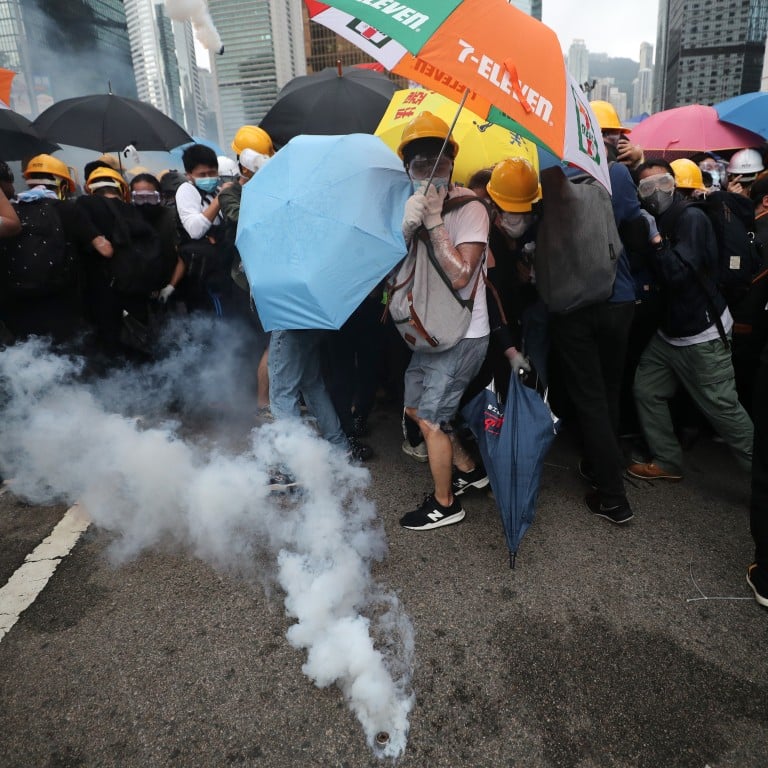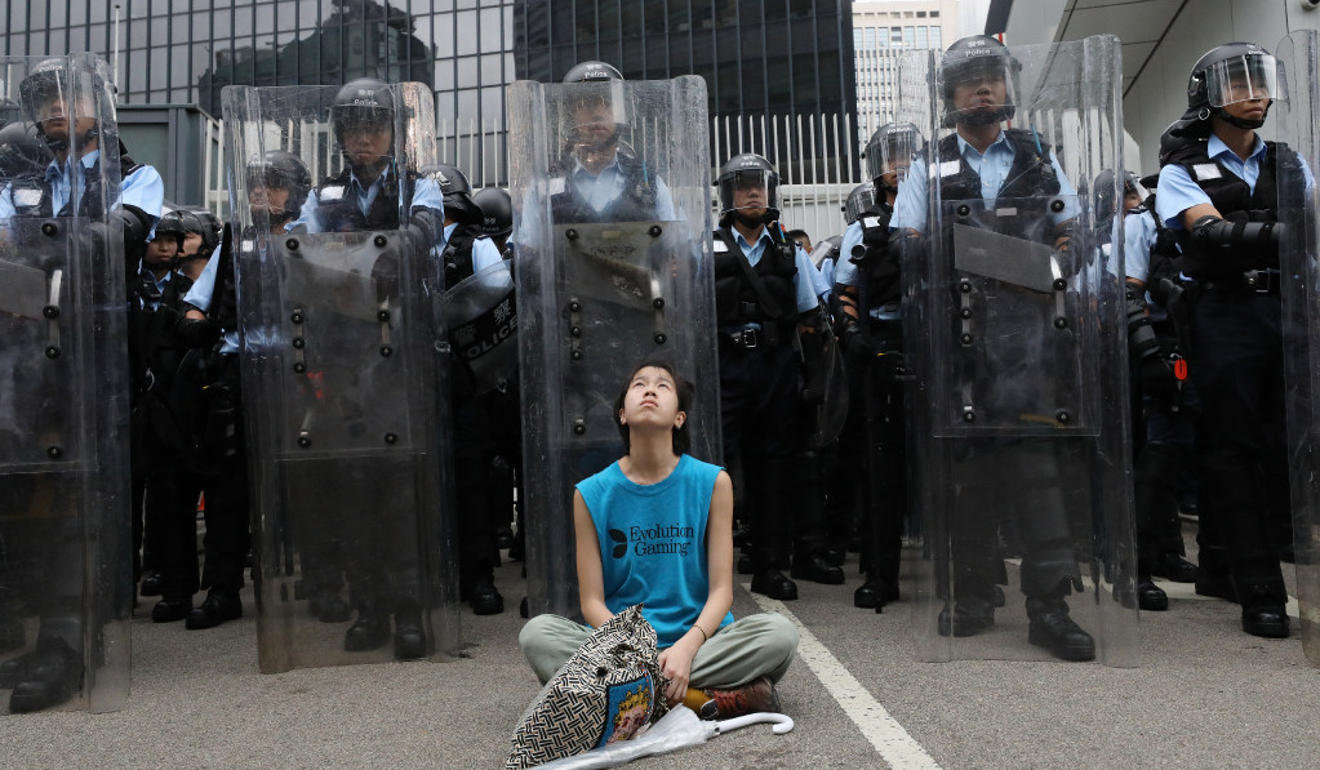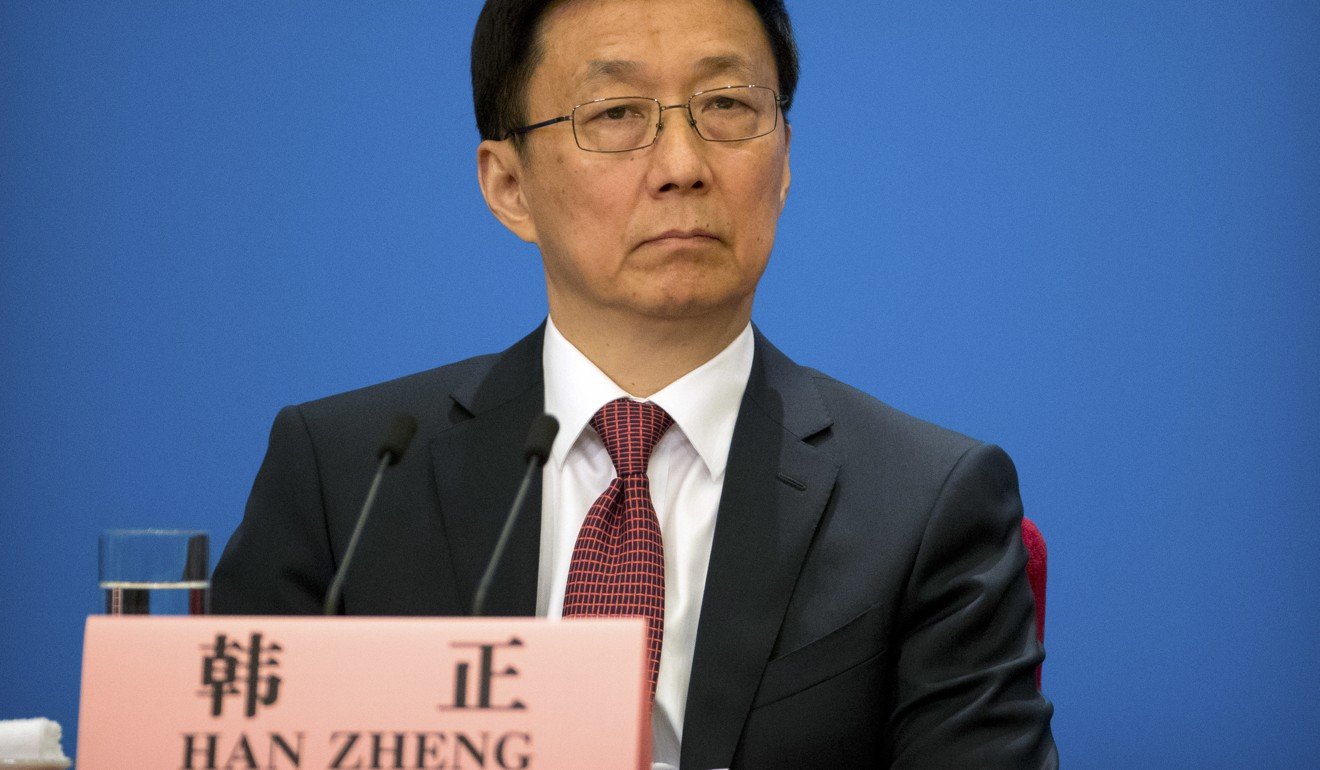
Hong Kong government will announce pause on unpopular extradition bill by afternoon
- Officials to hit pause button on passage of bill ahead of Sunday protests
- Beijing officials in charge of Hong Kong affairs meeting in Shenzhen on bill
Hong Kong’s embattled government will hit the pause button on its controversial extradition bill as early as Saturday afternoon, sources have told the Post, after Beijing officials in charge of the city’s affairs held meetings in neighbouring Shenzhen to seek a solution to a crisis that has made international headlines.
City leader Carrie Lam Cheng Yuet-ngor was expected to announce the decision at 3pm at the government headquarters.
LIVE: Hong Kong leader to delay extradition law to ‘avoid bloodshed on the streets’
It is understood that officials were assessing the pros and cons of pausing the legislation or pressing ahead rather than a total withdrawal of the bill, which would allow Hong Kong to transfer fugitives to jurisdictions it lacks an extradition arrangement with, including mainland China.
Another source confirmed Lam held a late-night meeting with key government officials in the city and would hold another on Saturday morning to go over similar options.
A senior pro-establishment politician also told the Post Lam and top officials would meet all pro-government lawmakers – who hold 43 of 70 Legislative Council seats – at her office in Government House at noon to explain the thinking behind the postponement.
Ronny Tong Ka-wah, who sits on the Executive Council, which advises the city leader, said that if government deferred the bill it would not be reintroduced to Legco in the near future.
Noting November’s district council elections, followed quickly by the Christmas and Lunar New Year holiday, he said: “Given all the backlash [the legislation] creates and all the misunderstandings over this bill, it won’t be back to Legco in the short run.”
But he insisted Beijing still had “absolute trust” in Lam.
China summons US envoy in protest over Hong Kong extradition bill remarks
Whether a pause on the legislation would encourage those opposed to the bill to continue to take to the streets in a planned rally on Sunday, or appease them, remains to be seen.
Critics of the bill have said it would leave Hongkongers at risk of unfair prosecution on the mainland, and damage the city’s standing as a global hub of free commerce.

While several heavyweight advisers were calling for more time to discuss the bill, others suggested the government continue to fast-track it through the legislature.
Legco’s president had set a self-imposed deadline of passing the bill by next Thursday. But that deadline appeared increasingly unlikely to be met, given the council had cancelled all meetings since violent clashes outside the chamber on Wednesday.
Opposition to the bill has been mounting, prompting more than a million marchers to protest last Sunday, according to organisers, while police put the turnout at 240,000. Sunday’s march was followed by protests on Wednesday which led to the disturbances at the legislature, during which police fired tear gas and beanbag rounds. Some 80 people were injured, including 22 police officers.
On Saturday morning, three pan-democrat legislators – Claudia Mo Man-ching, Raymond Chan Chi-chuen and Gary Fan Kwok-wai – marched to Government House, Lam’s residence, to demand a dialogue with her.
Chan and Mo tried to run onto the premises as the gates opened, but were immediately stopped by police.

Shenzhen, a mainland city just across the border from Hong Kong, allows easier monitoring of media and meetings. Any meetings held by Beijing officials in Hong Kong at times of political crisis would trigger doubts about the sanctity of the governing principle of “one country, two systems”, under which the central government promises the city a high degree of autonomy.
The sources would not confirm whether state leader Han Zheng, the Politburo Standing Committee member who oversees Hong Kong affairs, was in the southern city, but indicated officials were monitoring the situation closely.
In 2003, when half a million people took to the streets to oppose national security legislation stipulated under the Basic Law’s Article 23, Beijing officials also went to Shenzhen to hold meetings.


